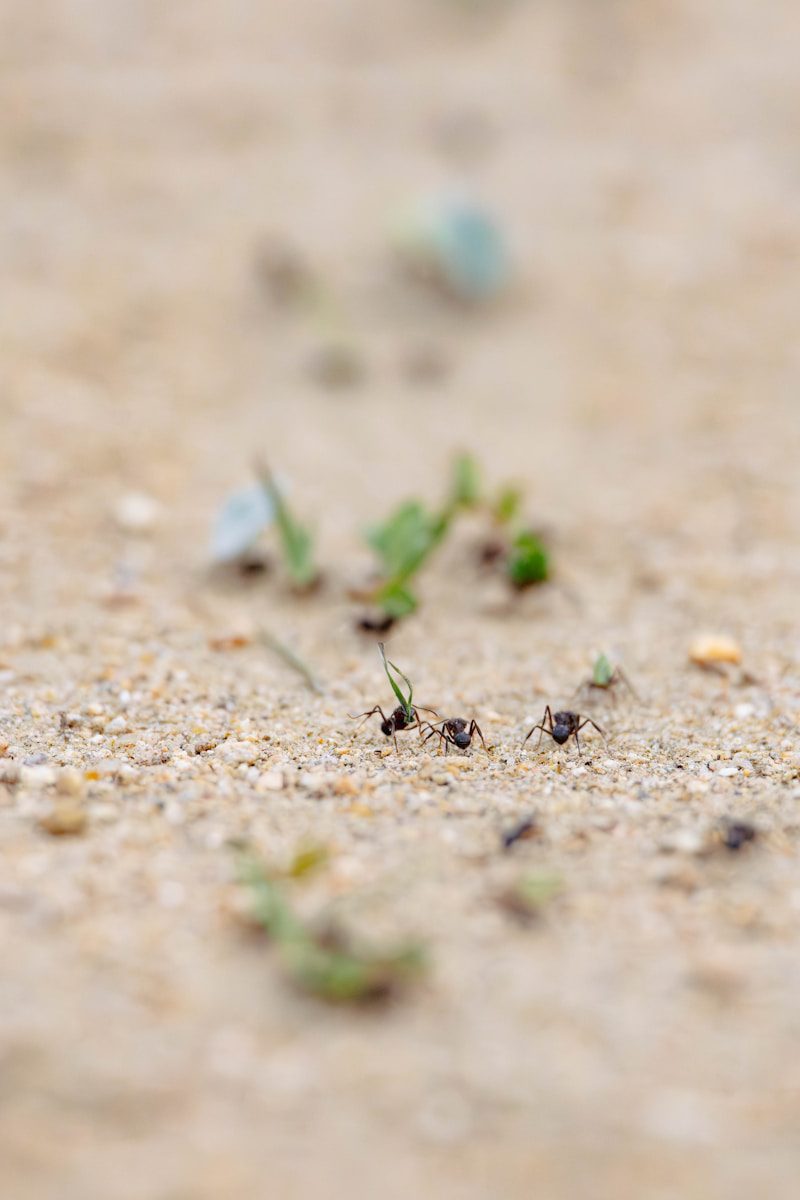Ants are some of nature’s hardest workers. They dig, build, and scavenge with endless energy. In small numbers, they can even be helpful, aerating soil and cleaning up debris. But when colonies grow too large, they become a nuisance. They farm aphids, steal seeds, and sometimes disturb roots. If you’ve spotted lines of ants marching across your beds, it’s time to take action. The good news is that there are safe, smart, and natural ways to bring your garden back into balance.
Why Ants Take Over Gardens
Ants come to the garden for food, water, and shelter. Sweet sap, ripening fruit, and honeydew from aphids are all irresistible. Loose soil makes it easy for them to tunnel. Moist spots provide comfort in dry weather. Once they settle in, they build a colony and protect their food sources fiercely.
Knowing why they’re there helps us control them. Instead of treating ants as enemies, we treat them as problem guests who need boundaries.
Natural Ways to Control Ants
Disturb Their Trails
Ants rely on scent trails to move between food and nest. If you break these lines, they lose their map.
- Pour boiling water on active trails or near nests (use with caution around roots).
- Sweep or spray trails with a mix of vinegar and water.
- Sprinkle cinnamon, coffee grounds, or baby powder along their paths—ants dislike crossing these textures and scents.
Remove Food Sources
Ants thrive where food is easy. Cutting off their supply reduces their interest.
- Control aphids, mealybugs, and other sap-sucking pests, since ants “farm” them for honeydew.
- Harvest ripe fruits and vegetables promptly.
- Clean up fallen fruit and plant debris quickly.
Use Barriers and Deterrents
Ants avoid certain scents and textures, which makes them easy to block.
- Diatomaceous earth sprinkled around beds acts as a natural barrier. It’s harmless to plants but sharp to ants.
- Citrus peels or sprays with lemon oil disrupt their trails.
- Garlic sprays also deter ants while helping repel other pests.
Natural Baits
If ants are persistent, baiting may be necessary. Homemade mixes can target the colony without harming your plants.
- Combine sugar with borax in small containers near ant activity. Ants carry it back to the nest, reducing numbers over time.
- Use only in controlled spots, away from pets and children.
Healthy Garden Habits to Prevent Ants
Stopping ants isn’t just about reacting. It’s about prevention.
- Water wisely: Overly damp soil invites ants. Water deeply but less often to keep the ground healthy without excess moisture.
- Turn the soil: Disturbing nests during seasonal tilling or bed prep discourages colonies from settling in.
- Companion planting: Strong-scented herbs like mint, lavender, and tansy naturally discourage ant activity.
- Encourage predators: Birds, toads, and beneficial insects keep ant populations in check.
Balanced Gardens, Peaceful Spaces
Getting rid of ants in your garden doesn’t mean wiping out every last one. It means setting limits so they don’t overwhelm your plants. By breaking trails, removing food, using natural barriers, and keeping healthy routines, you can restore balance.
When we work with nature instead of against it, our gardens thrive. Ants can still live nearby, but your vegetables, flowers, and fruit remain yours to enjoy. That’s the heart of gardening—cultivating a space where beauty, food, and life flourish side by side.

